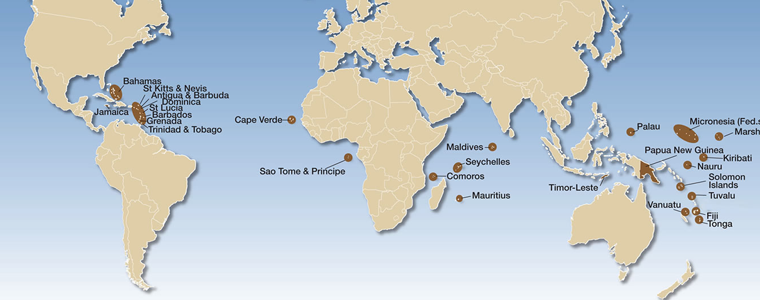Imagine living in a country that could be wiped off the face of the earth within the next few decades. That’s the bleak predictions many of the small island nations of the world are up against with climate change threatening their physical, economic and cultural survival.
Recently, we witnessed the acceptance of the world’s first climate change refugees. New Zealand officials recently accepted a family of refuges by a family from Tuvalu, a Pacific island that is swamped and sinking due to rising sea levels. While the circumstances for this particular family make it an unusual case, the unprecedented decision has important implications.
As of now, climate change and sea level rise are not recognized as legitimate refugee by the International Refugee Convention. Yet these conditions are expected to create masses of refugees worldwide seeking safe haven from increasingly uninhabitable countries. Australia, in particular, is facing pressure to accept climate change refugees from nearby low-lying South Pacific island states and has been petitioned to create a new refugee category for climate change.
Small island developing states (SIDS) in the Pacific and elsewhere are particularly vulnerable to the effects of global warming such as more frequent and intense natural disasters including floods and droughts. An international conference in Samoa this week is bringing attention to the serious challenges climate change and other complex issues pose to SIDS across the globe, as part of United Nation’s International Year of Small Island Developing States.
SIDS have been in the forefront of urging swift, international action to address climate change and other critical issues that impact our oceans and their populations’ survival, such as overfishing and habitat destruction. Many island nations have had to enact plans for relocating entire communities as rising seas erode their coastlines. While the plight of these island states seems more immediate, many continental coastlines around the planet are expected to face similar challenges within the next century as ice sheets destabilize and melt.
Sometimes it takes those who are closest to the proverbial tsunami to urge the rest of us to shore up and make some serious plans to reduce the magnitude and impact of the storm. Besides these valuable communities and cultures, those tropical island vacation spots many of us enjoy would be a shame to lose for future generations.



